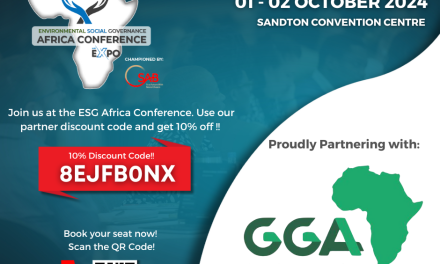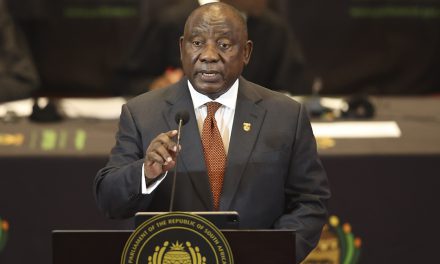In the wild, the watering hole attracts both predator and prey. Prey come to quench their thirst, and predators to quench their thirst and hunt for vulnerable prey.
In both illiberal and liberal democracies, elections are the “watering hole” of governance. Richard S Katz, in Democracy and Elections, said: “Elections are the defining institution of modern democracy.”

Elections attract both politicians and the electorate. The electorate is drawn by the promise of a good life and politicians by the promise of power.
Winston Churchill stated that “no part of the education of a politician is more indispensable than the fighting of elections”. If their training was good, it would have included political communication.
Hennie Swanepoel and Frik de Beer, in Community Development: Breaking the Cycle of Poverty, describe political communication as consisting of messages about political orientation and policy preferences.
Politicians typically desire a high voter turnout on election day. But this may not always hold in one-party dominant proportional representation systems such as South Africa’s, in which politicians feel that they are not directly accountable to the electorate. In this instance, higher turnout may threaten their incumbency.
Either way, election campaign time remains a theatre for politicians to push their message through to the electorate. To move people from their homes, to register, and ultimately to vote for them, they use communication.
At the heart of their political communication are promises of what they will do for the electorate once they get into power. Promises are the oil that lubricates electoral campaigning. They are powered by the eloquence of the politicians and the euphoria surrounding the campaigning events.
During election campaigning, politicians up their game to attract and convince as many people as possible to vote for them. It is in the bastardisation of political communication, and the space of promise-making in which politicians are likely to use misinformation and disinformation to confuse many people.
Disinformation consists of half-truths; just enough truth to be believable but with boatloads of untruths embedded in it.
Those who have the benefit of incumbency use exaggeration when talking about the extent to which they fulfilled their promises of the past. Those politicians not in power make promises of change.
Often, there is no guarantee that they can do what they say. Unlike in Churchill’s time, politicians today have access to social media, which thrives on short sound bites.
It is possible today for a politician’s social media team to cut a small sound bite of their opponents and use it against them. Or they can simply share a clip, knowing full well that it is a misrepresentation. The political disinformation mushrooms because it is amplified by social media.
At the heart of disinformation is dishonesty and the willingness to spread highly selective misinformation for the sake of achieving power. Some politicians are good at telling all the bad stories about their enemies rather than their own good stories.
Former United States president Donald Trump has mastered the art of insulting and lying about his political opponent.
Imagine my shock recently as I watched former Clinton adviser Paul Begala discuss a recent report raising questions about President Joe Biden’s mental capacity. Speaking live on CNN, Begala, referencing a 2012 speech made by Biden, reinterpreted Biden’s words as “instead of going to the press conference saying, ‘I really am sharp’, you attack the other guy.”
What Biden actually said, in what is often referenced in political and business contexts as a piece of advice for effective communication, was, “Don’t compare us to the Almighty. Compare us to the alternative.”
The pull factor behind the electoral promises of politicians is the prospect of power. The pull factor for the electorate is the hope for a better life, such as jobs, quality service delivery, a reduction in crime and corrupt people held to account. In the interface between these two sets of needs for politicians and the electorate, disinformation is often used.
Disinformation, therefore, is a threat to democracy just as it is to any relationship. The electorate must not be gullible, no matter how much they love the politician. The question becomes: how can the electorate cut through the clutter to make the right decision when voting?
If elections are the defining institution of modern democracy, as Katz asserted, it means the electorate must be more vigilant about how they vote and who they elect.
They must make sure that they do not go to the “watering hole”, hoping for their thirst for a better life to be quenched, only to be cannibalised by political predators who will discard their carcasses and move on to other prey.
The good thing about the 30 years of democracy that South Africa is celebrating is it has given the electorate enough time to process their experience of governance.
They have seen parties rise and fall. They have heard politicians say the same things over and over again. They have experienced the consequences of political decisions or political stances taken by the various parties and their leaders in the past.
They have seen political splits and squabbles that, in some cases, created service delivery gridlocks in their municipalities. They have watched various forms of spectacle play out in parliament and in the courts of law. So, as they prepare to vote later this year, they should consider the following:
- They must use all the data in their experience as part of their decision computation;
- They must carefully examine the character, credibility, conduct and competence of the politicians who make the promises and their political parties;
- They must question people who have no political principles but simply say what they think voters want to hear;
- They must look at politicians’ track record of fulfilling past promises; and
- They must consider how these politicians conduct themselves in public and ask: “Do they subscribe to democracy, decency and non-violence?”
This article first appeared in Mail & Guardian on 14 February 2024.
Lonwabo Patrick Kulati is the Chief Executive Officer of Good Governance Africa’s (GGA) Southern Africa Regional Office (SARO). He has a strong history of leading international NGOs and driving organisational growth, effectiveness and profitability. He also has expertise in strategy development and execution, leadership coaching, fund development, stakeholder management, advocacy and partnership cultivation. Patrick is also a published author of "A Gap in the Cloud," providing valuable insights and inspiration on personal and leadership resilience. He holds a Master’s degree in Public Administration from the University of Stellenbosch.













